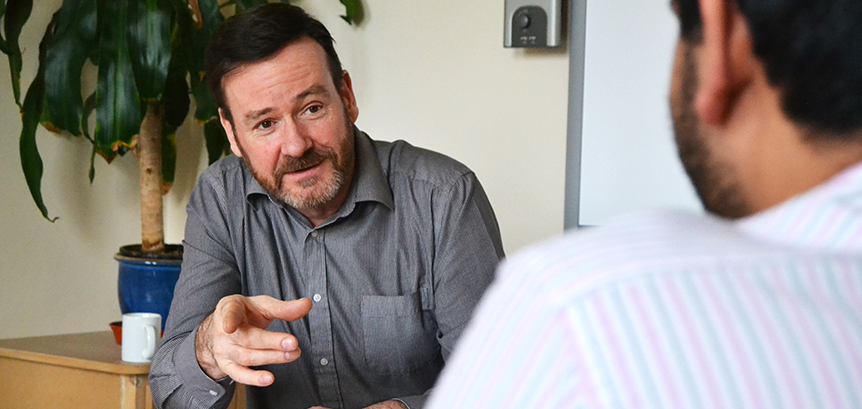
Posted on: August 24th, 2021

From the insistent salesperson who considers you a fool for not taking out an extended warranty for your new ear buds, to the car rental person, keys in hand, who shakes their head as you decline to pay the extra fee for that excess-waiver-thing? Or how about the retail website that tells you that you really do have to open an account and provide your mobile number if you want to make that small one-off purchase?
How do you react? Do you go along with it? Maybe you just agree so you can go and get on with your life.
Or do you push back? Is there a tendency in you (as I know there is in me) that if someone wants to strongarm you into something, particularly when you’ve already said ‘No’, to resist it even more forcefully?
Perhaps there is something similar in mediation that we need to look out for. As mediators we espouse a trinity of underpinning principles: voluntariness, impartiality of the mediator, and confidentiality. And it is impartiality that I’m thinking of when I refer here to the nature of change, resistance, and our inbuilt inclination not to go where others try to push us.
One of the myths and legends about mediation is that impartiality means the mediator sits on the fence: he/she is completely indifferent in relation to the parties’ opposing perceptions, arguments, and positions, and simply gets them to ‘thrash it out’ towards the end point of some sort of compromise. No. Real mediators know that our stance must be that we invest equally in both sides’ interests, underlying imperatives, and drivers. We empathise equally with both sides and use that empathy to build something of an interpersonal bridge between the parties: helping each person, at least temporarily, to understand how the other is currently interpreting reality.
And the use of ‘real’ above will give you a hint that I’m not talking here about the quasi-legal varieties of ‘Civil Mediation’: evaluative settlement conferencing, soft arbitration, neutral evaluation, etc. Rather, I am talking about true facilitative/transformative mediation, in which the mediator is an impartial catalyst to the parties’ improving dialogue and refrains from offering whispered legal opinion, from making any ‘If I were you….’ comments, or from having an expert’s-eye view about who is right or wrong.
Evaluative settlement conferencing and these other related processes try to make change happen. The practitioner aims to influence one or both parties’ view that their position in the dispute or their interpretation of the facts/evidence/law is flawed, weak, mistaken, or irrational, and that they should change that position or interpretation. When one or both sides eventually yield to the urge to make such a change, sometimes with the involvement of a persuasive adviser, the distance and difference between the parties narrows. A settlement, usually a compromise enshrined in a written agreement, is begrudgingly reached. The practitioner is said to have succeeded – hooray!

By contrast, true facilitative/transformative mediation for interpersonal disputes involves real impartiality: no urging, no top-down application of subject expertise, and no notion that the practitioner’s sense of success or failure hinges solely on whether the parties reach a written agreement at the end. Moreover, as mediation starts to work, the parties tentatively step into one another’s frames of reference, even for a moment: seeing the situation through the other person’s eyes and observing, albeit fleetingly, that the other is doing the same for them. Their proper dialogue then begins. They may agree something in a mediation session that brings their dispute to a close, or conversely they may not make any particularly concrete agreement and may just, through having proper dialogue, end up with an improved relationship, a lessened need to aggress on the other party, and a greater inclination to collaborate with them. It is the parties who have succeeded.
The true mediator is not trying to make change happen. He or she does not try to bring about a shift in the parties’ rigidified positions, does not urge them to change how they each recollect past events, nor pressure them to change their perception of the other person. Rather, what the true mediator does is set the optimal conditions for each party to see more clearly how things are. By doing so, each person then gets a chance to gain a clearer insight into how they are themselves making sense of the conflict situation, to appreciate how they are coming across to the other person, and to reciprocally get a clearer understanding of what the other person thinks, feels, and needs.
So, my approach to bringing about change and movement in mediation is that, paradoxically, gaining a greater awareness and understanding of what is gives rise to more opportunity for change to take place. I don’t take all the credit for this, and the Paradoxical Theory of Change (1) is well known within the field of gestalt psychotherapy: my original profession and the source of some of my ideas about how to make mediation work well. And while we are not, of course, doing therapy with the disputing parties in mediation, it is still the case that the paradox operates: pushing for change is more likely to make people stay exactly where they are, while building real, authentic dialogue around how things are sets the conditions for genuine and lasting change to take place.
For me, one of the fundamental ways that mediation works is by the mediator demonstrating impartiality through their preparedness not to push for change but to stay with the ‘here and now’ of the two parties’ meeting: allowing their disagreement, supporting them to fully express themselves, setting the conditions for them to be at times powerful, at times vulnerable, and ultimately allowing dialogue to emerge.
And while I have only discussed impartiality and the Paradoxical Theory of Change here, the other two mediation building blocks – confidentiality and voluntariness – are also key elements in bringing about genuine dialogue between people. And it is these principles I will come back to in later articles.
(1) Beisser, A. (1970) The Paradoxical Theory of Change. In: Fagan, J. and Shepherd, I.L., Eds., Gestalt Therapy Now, Harper & Row, New York, 77-80